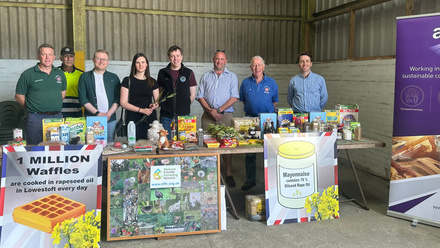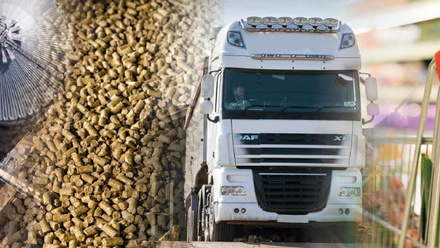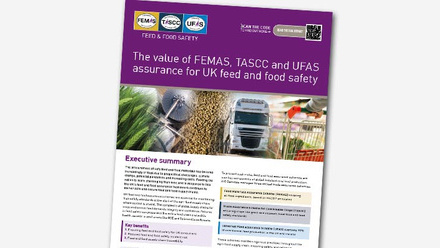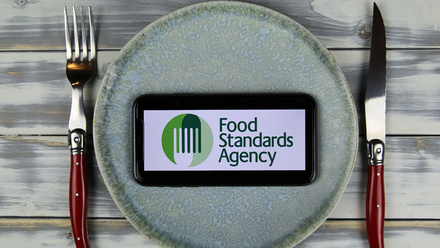How has food and feed auditing adapted during the pandemic?
Covid 19 has wreaked havoc in many parts of the globe and the human cost is unimaginable. The impact on business has also been phenomenal which looks set to continue in the coming months.
We eagerly await the application of vaccines in 2021 to see what impact this will have on controlling the pandemic. On-site auditing of companies has been through a seismic change in this period to adapt to the various lockdown restrictions that have been put in place by the Government in response to Covid 19.
“Pre Covid 19 the majority of audits were being carried out on site with the auditor physically visiting a company”, comments John Kelley, Managing Director of AIC Services. “This was a tried and tested programme that worked and had been in place for many years. This allowed an audited company to obtain certification once the necessary standards were met”.
Covid 19 struck in March 2020 and lockdown began – movement restrictions were immediately imposed and on-site auditing stopped. The industry needed to find a way of maintaining standards to ensure the continued flow of goods, yet at the same time protect the company and auditor from Covid 19.
“Both AIC and the certification bodies had been working with on-line portals and developing video auditing for a number of years”, continues Mr Kelley, “but there was limited demand to move away from the status quo. This changed dramatically and within a month of the lock down the auditing companies that worked with AIC had not only redesigned their on-line portals but had also enabled on-line calls as well as live-stream videos. Without Covid 19 I believe this would have taken the industry another five to ten years to adopt these new methods of working”.
AIC have also been working with the competent authorities and the United Kingdom Accreditation Service (UKAS) to ensure that this approach is acceptable and meets their requirements.
So, what have we learnt from this seismic change and what are the areas that can be developed?
Firstly, and most importantly, remote auditing works and can be used to maintain standards and protect the company and auditor alike. Who would have thought this was possible at the turn of 2020? With the adoption of new technology and the willingness of the industry and auditors to embrace new ways of working, standards have been upheld, trade flows have been maintained and the feed and food safety of the agri-food supply chain has remained robust.
Companies now pre-populate an on-line portal with essential data, which allows auditors to spend more time auditing the company digitally. The audit can take place on-line via a computer or a live video link so all areas can be inspected. Non-conformance can be followed up quickly and efficiently with uploaded documents and photos.
However, it has not all been plain sailing. On-line access is vital for these tools to work, so any business with poor internet could have problems. Having said that apps such as WHATSAPP appear to work in most locations. Background noise can also be an issue on site which can cause disruption in a manufacturing site audit. Uploads of documents can be time consuming and can lead to frustration.
“One of our international auditors reported that real-time auditing could be a problem where time zones differed significantly”, continues Mr Kelley.. “When completing audits in the US or Asia they had to be up most of the night, but the benefits of time and expense saved by not travelling was significant and the format provided so much more flexibility and sustainability credentials”
“So, what of the future?, concludes Mr Kelley. “We think a blended approach will be taken to auditing where some audits continue to be completed on-site but many are delivered remotely. This would provide an ideal balance, ensuring the implementation of lessons learned whilst delivering the robust auditing environment that the UK consumer expects”.
ENDS
About AIC
As the UK agricultural supply industry's leading trade association, the Agricultural Industries Confederation (AIC) represents businesses in key sectors within the supply chains that feed the nation.
Its Member businesses supply UK farmers and growers with the animal feed, fertiliser, seed, crop protection products, trusted advice and quality services that are essential to producing food, as well as trading crops and commodities across the globe.
Formed in October 2003 by a merger of three trade associations, today AIC has over 230 Members in the agri-supply trade and represents £17.8 billion* turnover at farmgate.
AIC works on behalf of its Members by lobbying policymakers and stakeholders, delivering information, providing trade assurance schemes, and offering technical support.
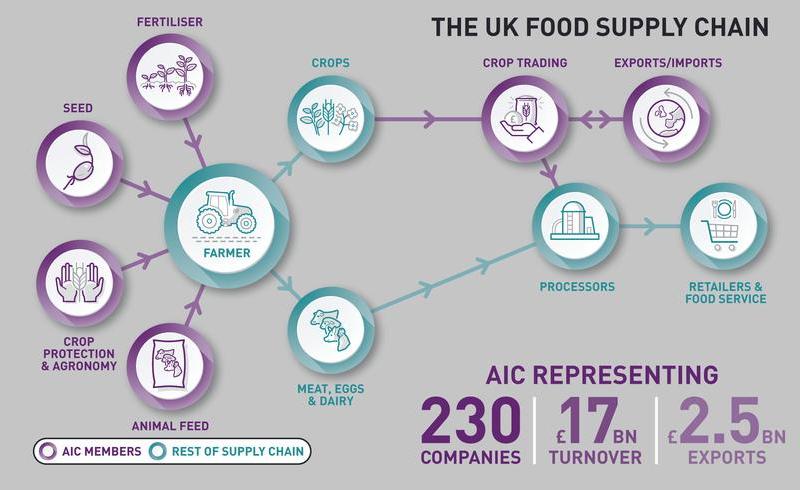
AIC Services manages a range of services, including Trade Assurance Schemes and professional registers recognised by the UK Government as essential means to underpin feed and food safety alongside fertiliser security.
These schemes and professional registers include:
- Trade Assurance Scheme for Combinable Crops (TASCC)
- Feed Materials Assurance Scheme (FEMAS)
- Universal Feed Assurance Scheme (UFAS)
- European Seed Treatment Assurance (ESTA)
- Fertiliser Industry Assurance Scheme (FIAS)
- Feed Adviser Register (FAR)
- Renewable Energy Directive (RED)
- Forage Assurance Scheme (FAA)
- AIC Services Palm Oil Credit Scheme (APOCS)
*According to a 2023 survey of AIC Members.
Press Contact
Wendy Ford, Communications Manager, AIC
+44 (0)1733 385230
[email protected]


